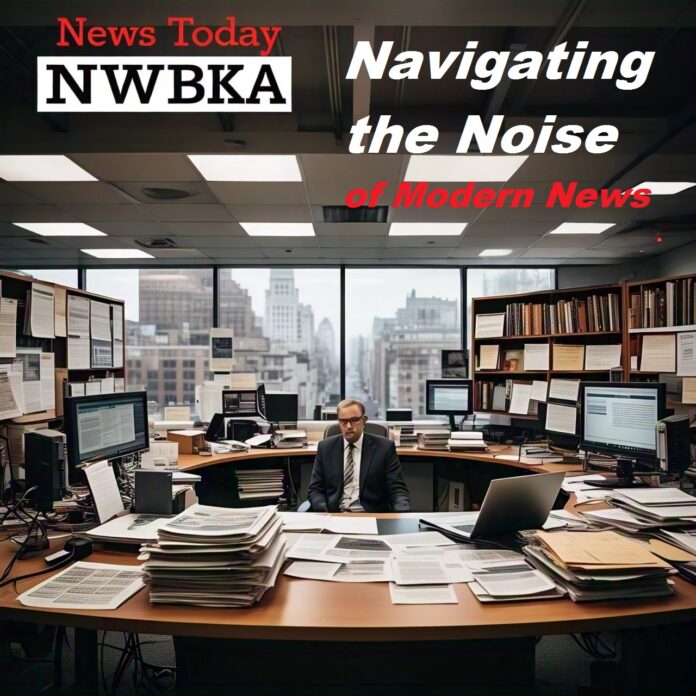News Today NWBKA – Staying updated within this rapidly transforming world has become exceedingly difficult synonymous with being overly challenging. It can be especially difficult to separate fact from false stories due to new sources piling up with each passing day, misinformation becoming more common, and the speed at which new headlines appear. News NWBKA (Navigating the World’s Best Known Algorithms) focuses on enabling readers to filter through all the misleading information and have access to trustworthy data.
In case you are someone looking ahead to gaining novel ideas while avoiding bias or sensationalism, algorithms, and self-sustained media diets do make modern consumption of news exceedingly difficult which I would recommend indulging in before taking a leap into modern-day news.
The Exceeding Obstacles of the World o News
Even though the Internet does democratize information by letting anyone publish news, it equally brings with it severe concerns.
1. A never-ending barrage of Information
An overwhelming number of social media posts, articles, and videos emerge at each ticking moment. For most, this indicates unrestricted access to wide-spanning global incidents, however it can also lead to decision fatigue or the struggle of discerning which information is credible.
2. The rise of fake news & Misinformation
Fake, alongside misleading news stories are now on a rampated rise like never recorded before in history. To top it off, the high rise of associated social media, arealgorithms that promote engagement alongside sensationalism tend to emphasize misleading content making the situation worse. The likes of manipulated images, clickbait headlines, deep fakes make discerning fiction from reality a tough battle.
3. Echo Chambers & Confirmation Bias
It is common that people will consume news which resonates with their strongly held ideals and biases. Social networks usually serve users content that corresponds with their likes, thus creating echo chambers in which competing opinions are seldom encountered.
How Our News Consumption is Shaped by Algorithms
We have complete control over the news that pops up on our screens. This raises the question – does it control us too? Algorithms answer that.
1. News Distribution Through Social Media Posts
Facebook, Twitter (X), TikTok, and co. do not aim at optimizing the quality of news articles that appear on their platform. Their primary goal is maximizing user engagement. As a result, TikTok made up the concept of engaging videos, which overtook nuance in news reporting. They are driven by likes, thus emotionally charged or controversial articles are on the rise.
2. Engine Searching and its Personalized Results
Google and its search engines slice and dice results through the actions of the users themselves. Two different people searching for the same topic can and will get different articles presented to them and much differently shaped events than intended for them.
4. The Filter Bubble Phenomenon
When content is tailored prior based on a person’s online actions, the user is algorithmically jerked into filter bubbles. These bubbles possess low amounts of diverse information which, in sum, polarizes the audience and thins the publicly available information and deepens social divides.
How To Navigate News
Misinformation is a blight upon a well-crafted society. To manage the issue deemed to be the drag under the water, one must:
1. Call and Follow Channels from other viewpoints.
- Get balanced outlets who have good reputations, such as The Economist, Windows BBC, Reuters, AP, and so on.
- Identify independent journalists and fact-checking groups (Snopes, FactCheck.org, etc.).
2. Verify Information Before Dissemination
- Look at the purported original source of a given story.
- Check multiple outlets for corroborating reports.
- Disregard emotionally charged headlines.
3. Limit Media Consumption
- Set specific schedules for news checking to avoid constant notification pop-ups.
- Unfollow and mute sensationalist accounts.
4. Understand the Outlet Bias
- Investigate the outlet using Media Bias/Fact Check.
- Understand that all reporting contains some degree of bias; the use of rational judgment serves as the backbone of evaluation.
5. Participate in Progressive Debates
- Engage news with people who hold different opinions from theirs.
- Do not participate in discussions termed ‘flaming’ that promotes the us-versus-them mentality.
Consumption of News in the Future
Hurdles in verifying the information will only worsen with the advancement of deep fake and AI technologies. Nevertheless, innovations such as blockchain-based journalism (which guarantees the authenticity of content) and AI-powered fact-checking could help to return the trust people put into the media.
In general, jwa news NWBKA highlighted the essentiality of media literacy. edification made to enable individuals reason and critique information instead of the passively accepting the information presented as fact with no thought.
Wrap Up
Keeping up with evolving news requires vigilance, critical thought, and a readiness to look at things from different angles. By recognizing how algorithms dictate what we receive, changing the way we consume media can help to dodge misinformation.
FAQs on Modern News Consumption
1. Briefly describe what NWBKA means?
NWBKA is an acronym for Navigating the World’s Best-Known Algorithms. This is to emphasize the focus on understanding how algorithms impact digital and even physical newsrooms.
2. Does fake news have identifiable borders?
- Scrutinize the author or the publisher behind the alleged fake news
- Look for rigid inconsistencies or the obvious lack of supporting evidence
- Verify using trusted researchers like Snopes, FactCheck.org, or Politifacts
3. Why are some news stories politically biased?
All news stations have a stake in one political party or another; the media bias is defined on political, cultural, and corporate. The main challenge is reading multiple news sources for a balanced analysis.
4. What is the impact of social media presented to the public?
Social Media Networks exist on the culture of content. They thrive on and curate what gets engagement whether comments, likes, and shares, thus sensationalizing many divided posts, over quiet nuanced angles.
5. Is the SND strategy recommended to alleviate news anxiety?
- Set aside periods solely dedicated to news
- Refrain from using cunk and sensational headlines from reputable sources only
- Take time off the news to lean on predictability to reduce anxiety.
6. Are there tools to help identify reliable news sources?
Yes! Websites like:
- Media Bias/Fact Check (rates bias and accuracy)
- AllSides (shows left/center/right perspectives)
- NewsGuard (evaluates website credibility)
7. How can I avoid echo chambers?
- Follow news outlets with differing viewpoints.
- Engage in discussions with people who have different opinions.
- Use platforms that promote diverse content (e.g., Ground News).
8. Will AI make news consumption better or worse?
AI can help with fact-checking and detecting deepfakes, but it also risks spreading misinformation if used unethically. Critical thinking remains essential.
9. What’s the difference between misinformation and disinformation?
- Misinformation = false information shared unintentionally.
- Disinformation = false information spread deliberately to deceive.
10. How can I teach media literacy to others?
- Share fact-checking resources.
- Encourage critical questioning of sources.
- Discuss real world examples of misinformation.
By being informed, we can tackle the challenges of modern news confidently. News Today NWBKA is here to help you navigate through everything.


